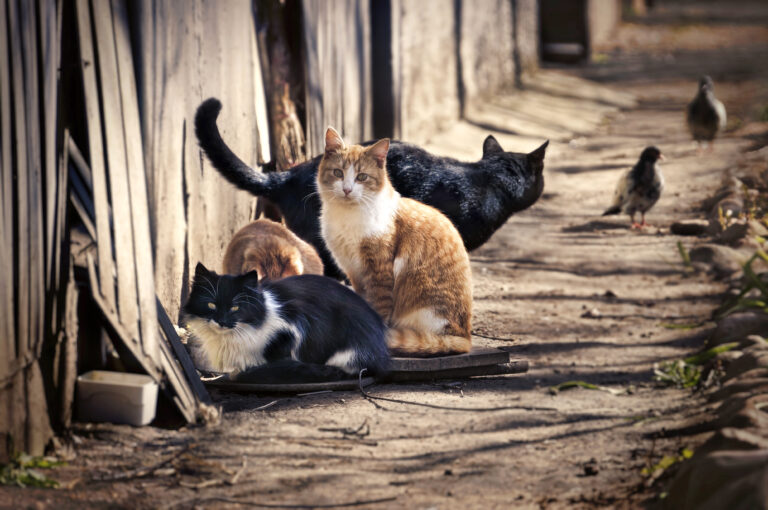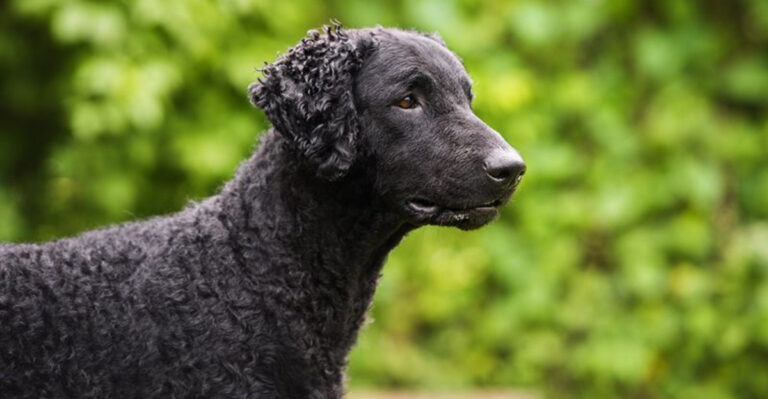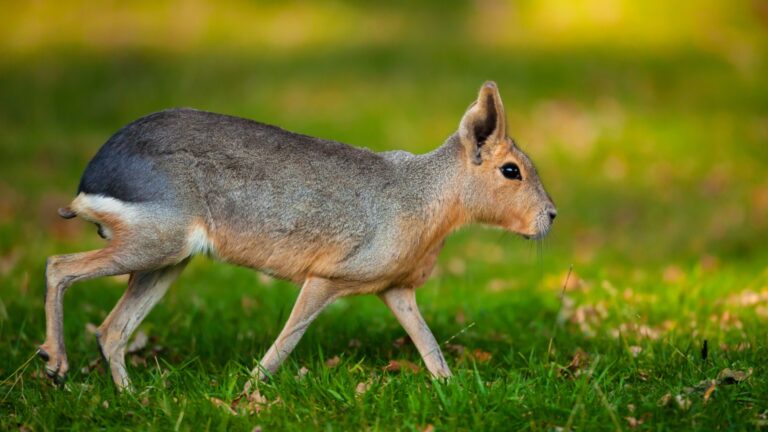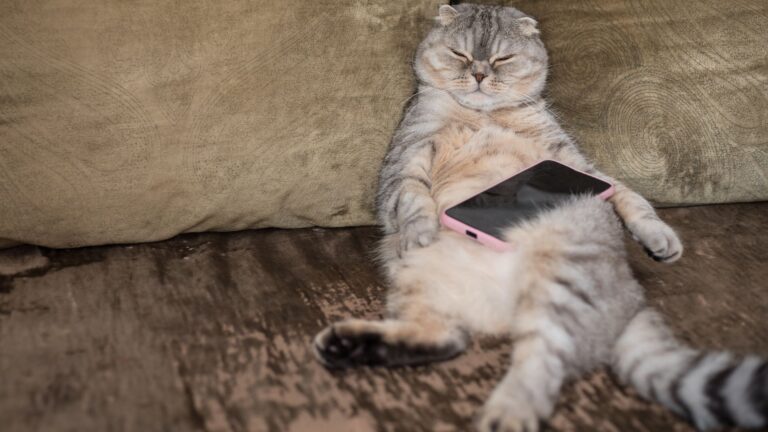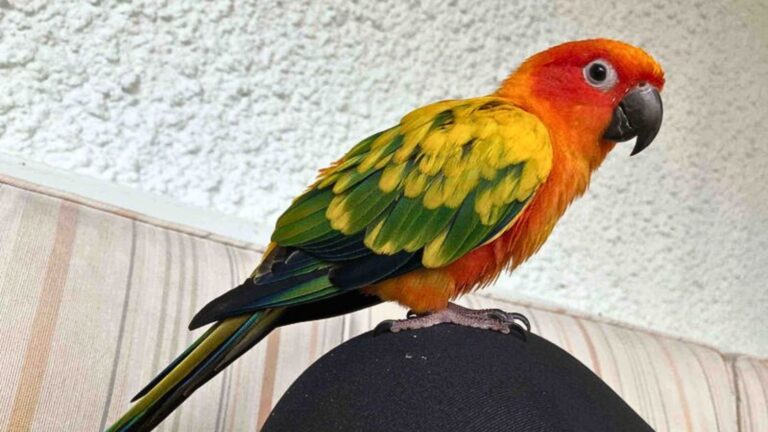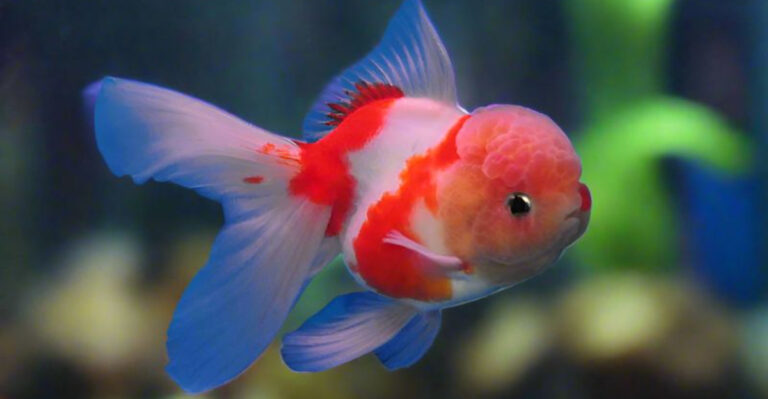15 Signs That Your Cat Is Dehydrated
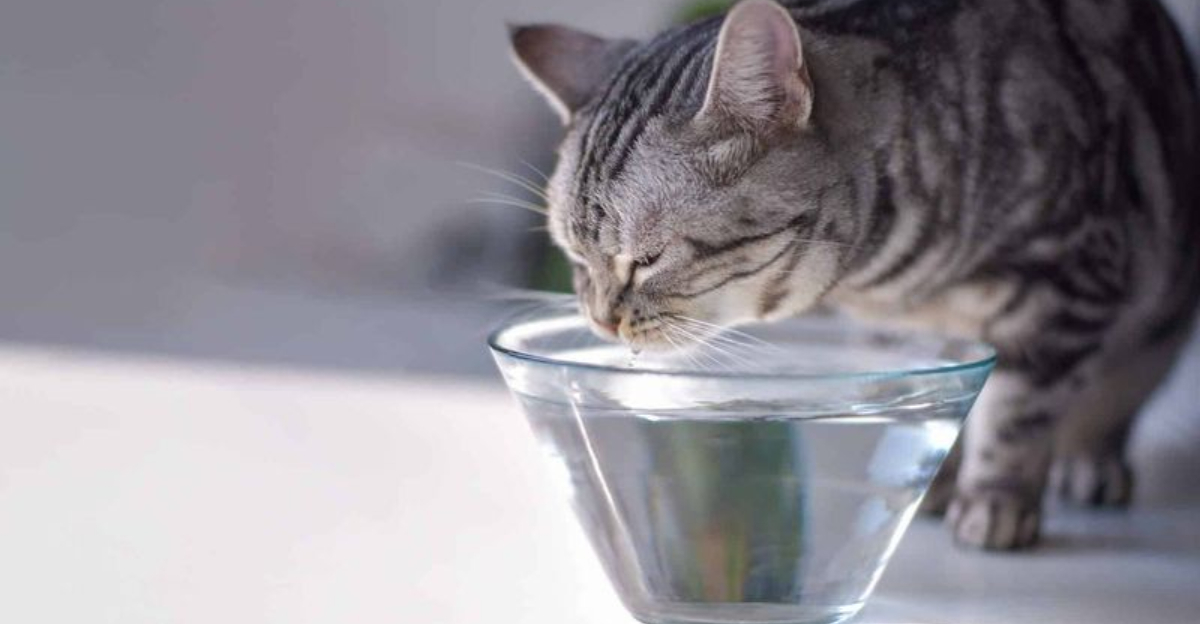
You might think your feline friend is simply being picky with their water bowl, but did you know that cats are notorious for not drinking enough water?
It’s a quirky trait, but one that can lead to dehydration. Recognizing the signs early can make all the difference in keeping your kitty healthy and hydrated.
So, how can you tell when your cat is running low on H2O? Let’s explore telltale signs, each with its own unique twist, that your cat might be dehydrated.
1. Sunken Eyes
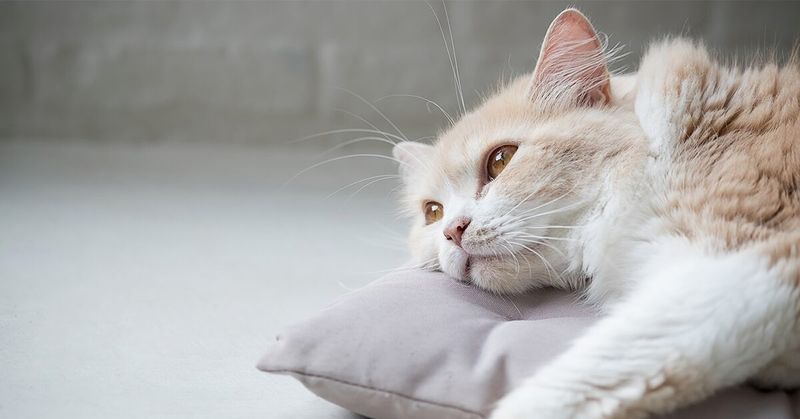
Ever notice your cat’s eyes looking a bit like they’ve been on a long night out? Sunken eyes in cats can suggest dehydration.
The eyes appear dull and may lose their usual sparkle, making your cat look less lively. If you spot this, it might be time to encourage more water drinking.
Try showing them a fresh bowl or a water fountain. Sometimes, the sound of running water does the trick!
2. Lethargy
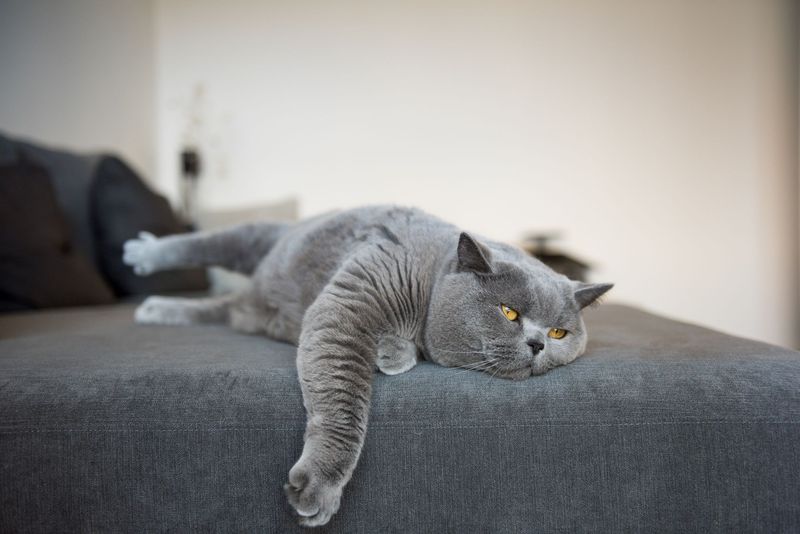
Is your usually playful kitty acting like it’s had a long week at the office? Lethargy is a major sign your cat might be dehydrated.
When cats don’t get enough water, their energy levels drop faster than a cat off a windowsill.
They might nap more than usual and show little interest in chasing their favorite toy mouse.
Keep an eye on their activity; offer water in different ways, like ice cubes in the bowl, to spark their curiosity and refreshment.
3. Loss Of Appetite
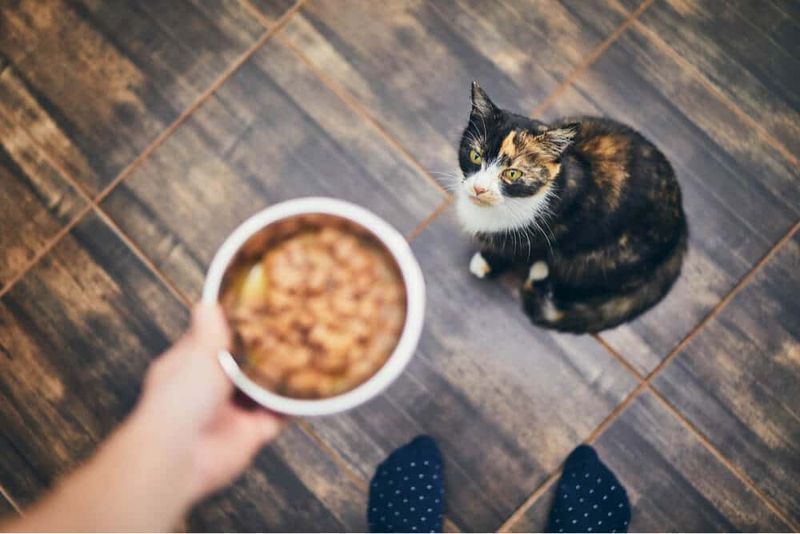
Imagine you’re served your favorite meal but just don’t feel like eating. That’s how a dehydrated cat feels. Loss of appetite can often accompany dehydration as the body prioritizes water intake over food.
If your cat starts turning up its nose at meals, it’s time to investigate the water situation.
Try mixing a little broth into their food or offering wet cat food, which has a higher water content, to help them rehydrate without hassle.
4. Dry Gums
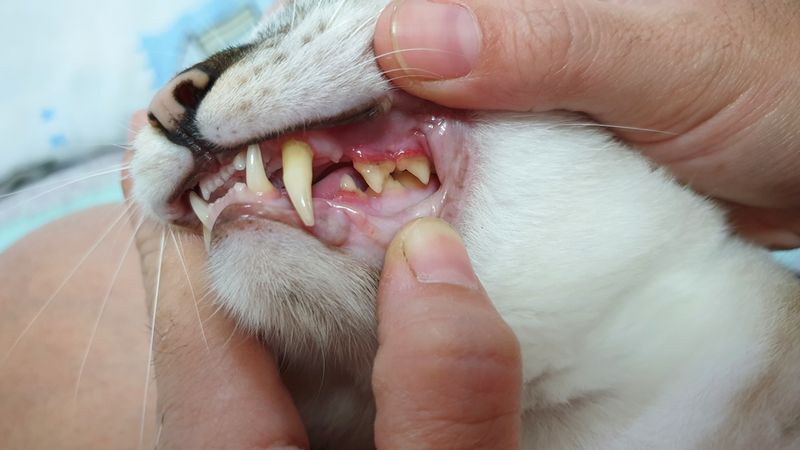
Have you ever checked your cat’s gums? Dry, sticky gums are like a neon sign for dehydration. They should be moist and pink, like a healthy rose.
If they feel tacky or look pale, your feline might be feeling parched.
Gently press on their gums to see if they bounce back to pink quickly; if not, it’s time to increase their water intake or consult a vet if the condition persists.
5. Decreased Skin Elasticity
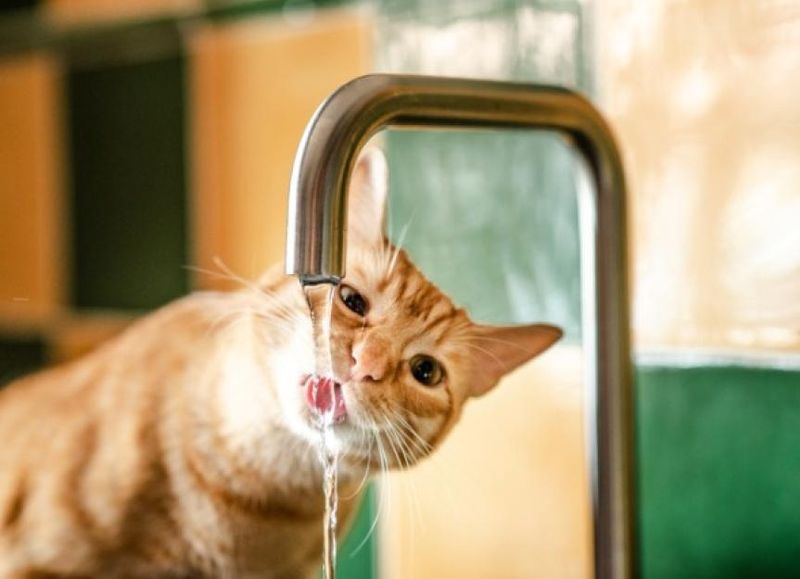
Skin elasticity isn’t just a concern for humans; it matters for cats too! Try this: gently pinch the skin at the back of your cat’s neck.
If it doesn’t snap back quickly, it might be signaling dehydration.
This simple skin test can help you monitor your cat’s hydration level. Ensure they have plenty of fresh water available, and consider a vet visit if the skin doesn’t bounce back soon enough.
6. Panting
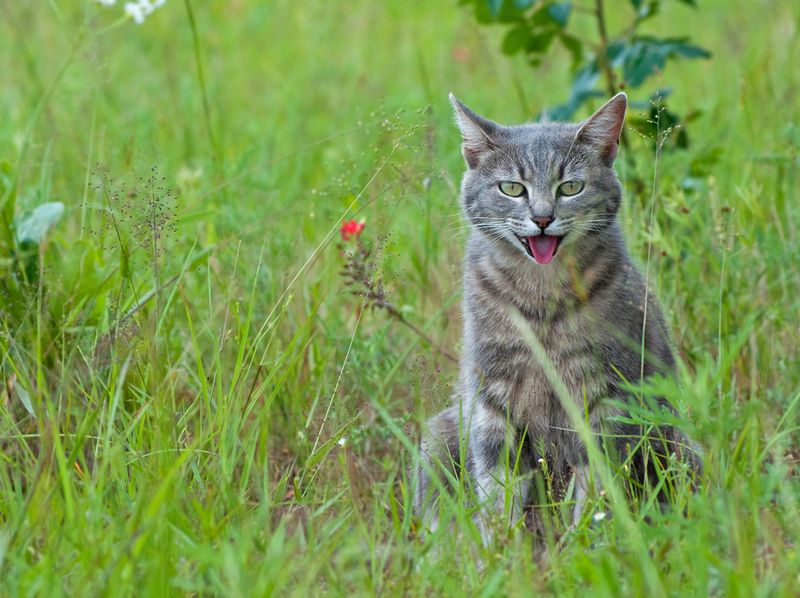
Cats aren’t dogs, so if you catch yours panting, it’s not a good sign. Panting in cats can indicate dehydration or overheating.
It’s like when you’ve run a marathon in a sweater – not comfortable!
Make sure they have access to shade, cool areas, and plenty of water. If panting continues, it’s a good idea to consult your vet for advice.
7. Low Body Temperature
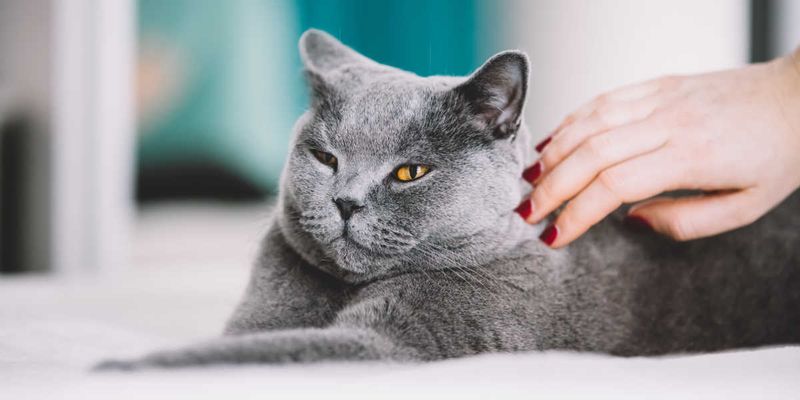
If your feline feels cooler than usual to the touch, it might not just be the chilly room. Dehydration can cause a drop in body temperature, making your cat feel unusually cold.
Wrap them in a warm blanket and monitor their water intake.
A quick check with a thermometer can help assess the situation. If they remain cold, it might be time to consult a vet to ensure they’re not facing a more serious issue.
8. Thick Saliva
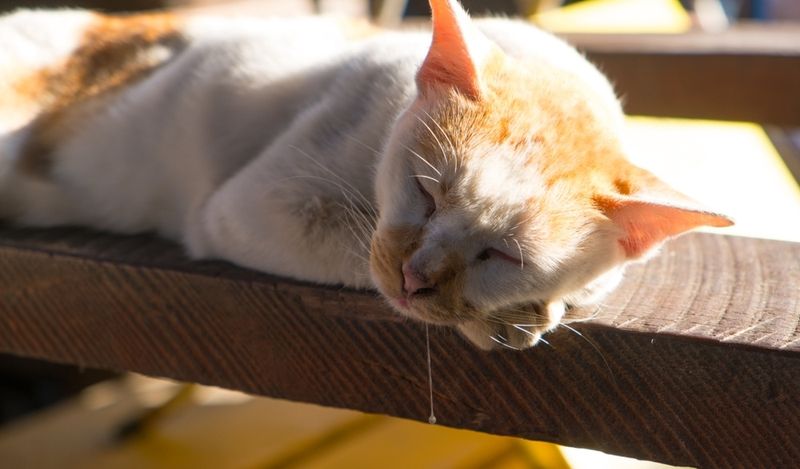
Ever noticed your cat drooling like it just saw a gourmet mouse? Thick saliva can be an indicator of dehydration.
Unlike the typical drool when they’re eyeing a treat, this drool is more viscous.
Keep tabs on their water dish, and ensure they’re drinking regularly. Offering a pet water fountain might entice them to drink more frequently.
9. Increased Heart Rate
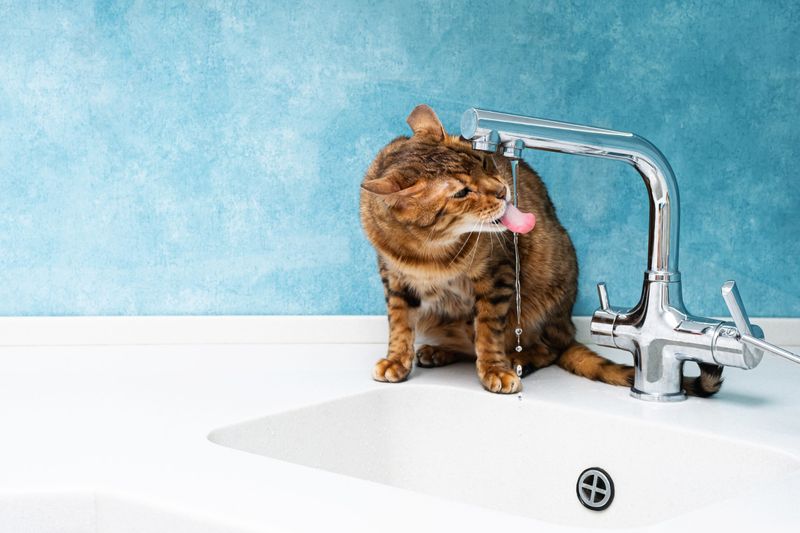
Is your feline’s heart racing faster than a squirrel up a tree? An increased heart rate can signal dehydration. It’s the body’s way of compensating for low fluid levels.
Check their pulse by feeling gently on their chest.
If it’s racing, make sure they’ve got access to water and a calm environment. Consider a vet visit if the pounding continues, to rule out any additional health concerns.
10. Constipation
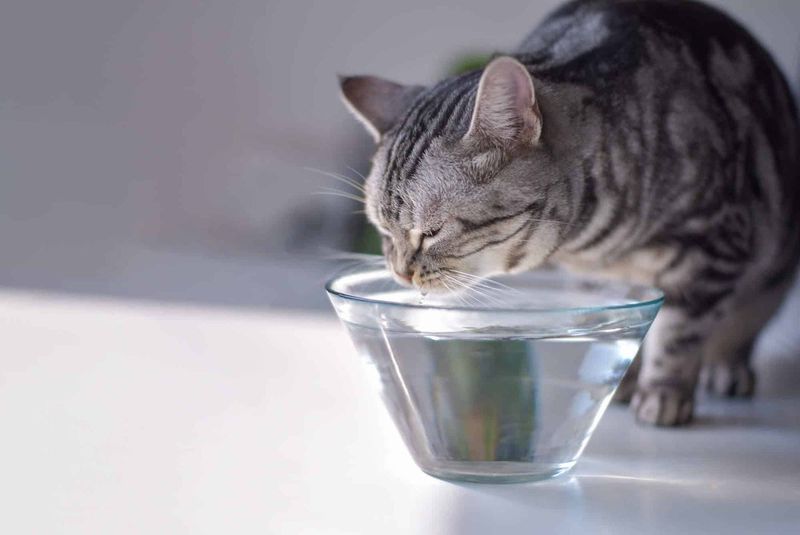
Even cats can get backed up sometimes. Constipation can be a sign of dehydration, as water helps keep things moving smoothly in the digestive system.
If your furry friend is spending more time in the litter box without results, it might be time to up their water intake.
Offering wet cat food or adding water to dry kibble can help. Monitor closely and consult a vet if the problem doesn’t resolve soon.
11. Urinating Less
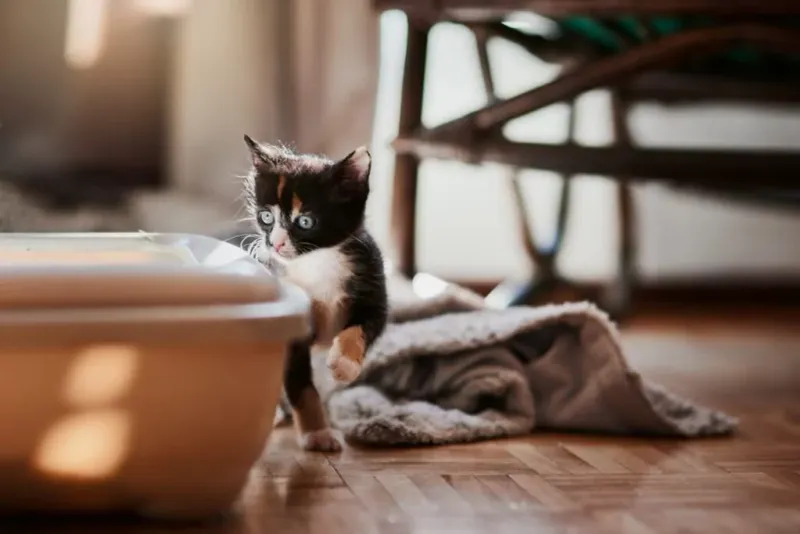
Notice fewer clumps in the litter box lately? A decreased frequency in urination is a classic sign of dehydration.
It means the body is conserving water, which is handy in the desert but not for your home-bound kitty.
Ensure they have constant access to fresh water. If the litter remains clean, it’s time for a vet check to make sure there’s no underlying issue.
12. Sunken Cheeks
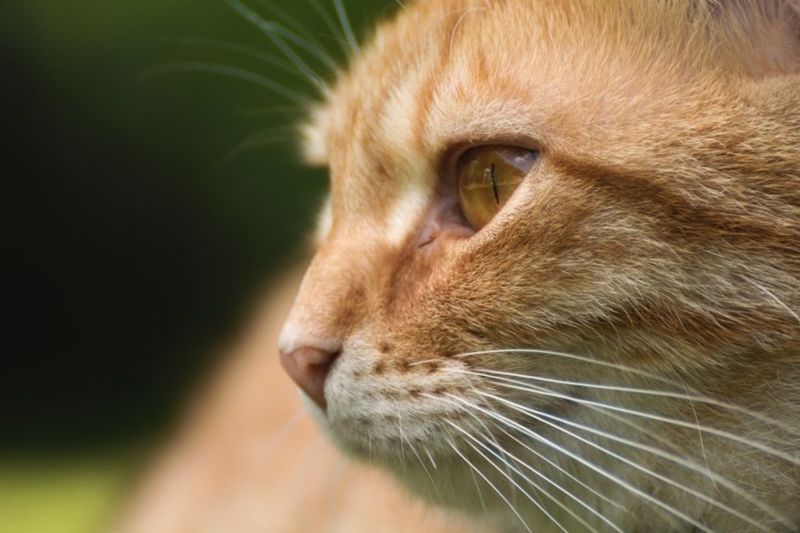
Those adorable fluffy cheeks looking a bit deflated? Sunken cheeks can imply dehydration in cats.
When the body lacks water, it can affect the fat pads that give those cheeks their plump look.
Keep a watch on their water habits and encourage fluids through wet foods and broths. If the cheeks stay sunken, a vet’s advice might be necessary to ensure overall health.
13. Bad Breath
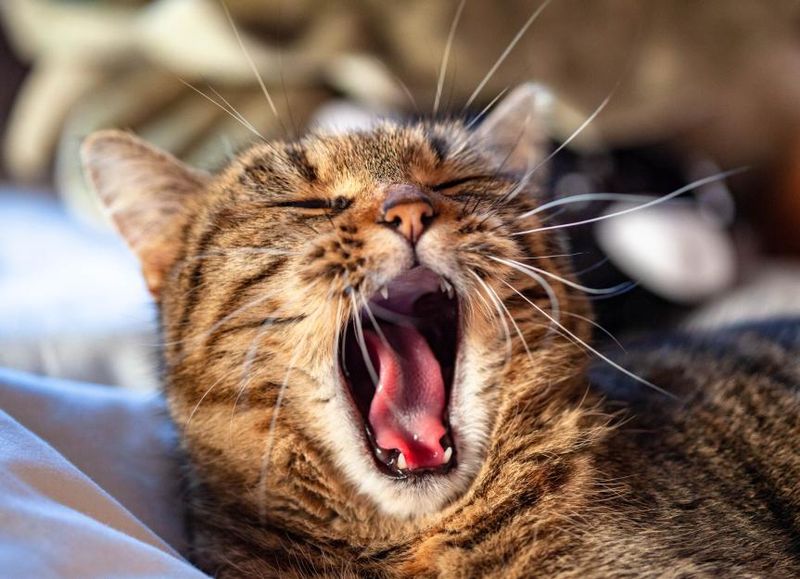
While often associated with dental issues, bad breath in cats can also be a subtle sign of dehydration.
Dehydrated cats might produce less saliva, leading to bacterial growth in the mouth and resulting in foul-smelling breath.
This lack of moisture can cause dryness in the oral tissues, exacerbating the problem and leading to potential oral health issues.
14. Weakness

Is your cat acting like it’s just run a marathon, but without the exercise? Weakness can be a clear sign of dehydration, as the body struggles without sufficient fluids.
They might seem wobbly or too tired to play.
Encourage rest and hydration, offering water regularly. If weakness persists, it’s crucial to consult a vet to rule out any serious issues.
15. Rapid Breathing
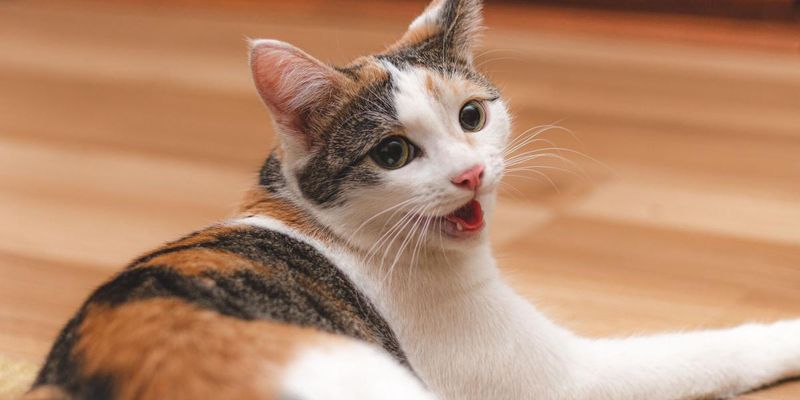
Does your cat sound like it’s just completed a sprint when it’s hardly moved? Rapid breathing can indicate dehydration or stress.
It’s like when you’re out of breath from running even though you’ve only been scrolling through cat memes.
Ensure they have a calm environment and fresh water. If the rapid breathing continues, it’s wise to consult a vet for a thorough check-up.

